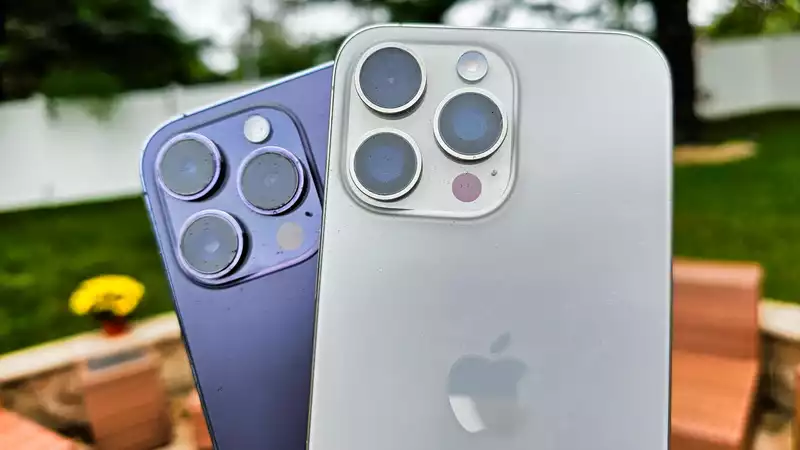Apple's iPhone is a frequent contender for the best camera phone, thanks in part to its superior performance, ease of use, and enhancements tailored to enthusiasts The iPhone 15 series proves it, especially the color science behind the iPhone 15 Pro's camera and the enhanced pixel binning technology behind the iPhone 15's 2x telephoto zoom With rumors that Apple may be working on its own camera sensor, the situation may be greatly improved in future iPhones This is a big deal
The speculation comes courtesy of Bloomberg's Mark Gurman, who reports that Apple is "eyeing an in-house camera sensor strategy" For those who have followed Apple over the years, this is not a radical suggestion, given Apple's history Just as the company moved to A-series chips for the iPhone and iPad, and in recent memory to M-series chips for the MacBook
Almost all of the best camera phones today use one of Sony's camera sensors with excellent results, and Apple is no stranger to this While the company has not disclosed the actual sensor used in the iPhone, it is believed that the iPhone 15 Pro uses the Sony IMX803 Moving from Sony's camera sensor to its own could push future iPhones to even greater heights in photography and videography
Current iPhone 16 camera rumors suggest that Apple's next flagship smartphone will feature a Sony stacked CMOS image sensor, so it will probably be a while before we see an iPhone with its own proprietary camera sensor However, this move is not a surprise Nevertheless, this move could inadvertently create a ripple effect on Apple's long-term plans
Many things happen in the split second between when a photo is taken with an iPhone and when it is finally displayed on the screen From the analysis of light conditions to the distance between the subject and the camera, there are complex processes happening in real time, even after the snapshot is taken
Having its own camera sensor could dramatically improve image processing in future iPhones Apple has already demonstrated the incredible depth of its photonic engine, which uses a combination of stacking and image processing to achieve the best results, regardless of lighting conditions or the camera used [New image processing techniques could be expedited by Apple's switch to its own sensors
It is not entirely unlikely that Apple will incorporate this in-house camera sensor into other products This strategy has cost-saving benefits, potentially improving product production times and reducing shipping delays in the long run
This could also alleviate Apple's need to negotiate with other companies to secure manufacturing contracts for the components that make up the iPhone's camera sensor Furthermore, Apple could order more components if it purchases them in larger quantities
However, the greater benefit of in-house manufactured sensors means that other Apple gadgets, such as the iPad, could also take advantage of these camera sensors Also, since the standard iPhone series typically has the same camera as the previous year's Pro model, Apple can anticipate production needs well ahead of time
The biggest takeaway, however, could be in spatial video, a new form of content capture
Garman's report details that its own strategy for camera sensors is "central to future developments in the mixed reality and autonomous driving industries" This is not directly tied to the company's plans for the upcoming Apple Vision Pro headset, but it indicates that it may play an important role in the future
Spatial video is one of the more immersive and exciting new experiences that is expected to showcase how people will use the Apple Vision Pro, and given that the iPhone 15 Pro is now capable of recording spatial video, Apple's ability to record its own camera sensor is compelling Having more control over the development and processing is critical for Apple's future offerings of mixed reality headsets to provide an even more immersive experience
All of these are compelling arguments, but they will take a long time to be realized For example, there have been rumors for years that Apple is working on its own in-house 5G chip to replace Qualcomm's modem, and it was thought that the latest iPhone 15 series would include one, but this has yet to happen The question is not whether Apple will develop its own camera sensor, but when it will










Comments